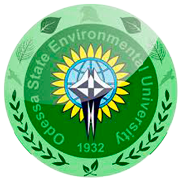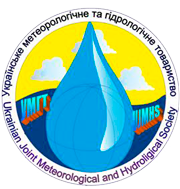Modelling of grains’ shoots formation
Abstract
The processes of seed germination and shoots formation of crops caused by environmental factors are investigated. Also existing approaches to the modelling of this period, modelling of processes taking place in a seed during its germination, shoots formation are investigated, the structure of the developed model of the period of sowing - rise of shoots is described, as well as the results of numerical experiments. The specified model is aimed at overcoming the disadvantages and improving previous models of the period of sowing - rise of shoots. Development of this model is based on the achieved level of modelling of shoots formation with introduction of certain modifications. The model takes into account both physical processes taking place in a seed prior to germination of shoots and physiological and biochemical processes such as hydrolysis of endosperm reserves, respiration, distribution of hydrolysis products within axial organs and their growth. The model is implemented on a PC using Microsoft Office Excel. Many numerical experiments were carried out in order to investigate sensitivity of the model to changes of environmental conditions during germination of seeds. It was found that main agrometeorological factors affecting the time of emergence and completeness of germination are temperature, humidity and soil density. Influence of soil moisture becomes the most apparent at the stage of absorption and accumulation of moisture by a seed starting from sowing to beginning of growth process. Provided that there are optimum moisture and temperature, density of soil appears to be limiting factor affecting shoots formation: if soil density increases duration of shoots emergence increases as well. Developed dynamic model allows determining the date of shoots emergence, their field germination rate, distribution of particular number of plants of with different depth of seeds covering and a number of plants per particular unit of area.
References
2. Dmitrenko V.P. Vliyanie temperatury vozdukha na prodolzhitelnost’ perioda posev - vskhody zernovykh kultur [The effect of air temperature on the duration of the period sowing - germination of grain crops]. Trudy UkrNIGMI – Proc. UkrSRHMI, 1961, vol. 22, pp. 618.
3. Kovtun I.I., Goya N.E., Mitrophanov A.B. Optimizatsiya usloviy vozdelyvaniya ozimoy pshenitsy po intensivnoy tekhnologii [Optimization of the conditions of winter wheat cultivation on intensive technologies]. Leningrad: Gidrometizdat, 1990. 288 p. (Ed.: Kovtun I.I.).
4. Nemchenko O.A., Musatenko L.I. Modelirovanie rosta i metabolizma rasteniy na rannikh etapakh organogeneza [Modeling growth and metabolism of plants at early stages of organogenesis]. Fiziologiya i biokhimiya kul'turnykh rasteniy. - Physiology and biochemistry of cultivated plants, 1982, pp. 439–445.
5. Nosatowski A.I. Pshenitsa [Wheat]. Moscow: State publishing house of agricultural literature, 1950. p. 408.
6. Pavlovа V.N. Modelirovanie rostovykh processov v period prorastaniya zerna v ramkakh modeley «pogoda - urozhay» [Modeling of growth processes during the germination of grain in the framework of models "weather - yield"]. Trudy VNIISHM – Proc. АRRIAM, 1983, vol. 8, pp. 28-36.
7. Poluektov R.A., Smolyar E.I., Terleev V.V, Topaj A.G. Modelirovanie produktsionnogo protsessa sel'skokhozyaystvennykh kul'tur [Modeling of production process of agricultural crops] Saint-Petersburg: Publisher Saint-Petersburg University, 2006. p. 396. (Ed.: Poluektov R.A.).
8. Polevoy A.M. Dynamіchna model’ prorostannya nasіnnya ta formuvannya skhodіv zernovykh kultur [A dynamic model of spending reserves in the endosperm of cereal seeds during germination]. Ukraïnsʹkij gìdrometeorologìčnij žurnal – Ukrainian hydrometeorological journal, 2008, no. 3, pp. 75-84.
9. Sirotenko O. D. Matematicheskoe modelirovanie vodnoteplovogo rezhima i produktivnosti agroekosistem. [Mathematical modeling of water and heat regime and productivity of agroecosystems]. Leningrad: Gidrometizdat, 1981. p 167.
10. Stroganova M.A., Korovin A.I., Polevoy A.M. Dinamicheskaya model' raskhodovaniya zapasov endosperma semyan zernovyh kul'tur v protsesse prorastaniya i v period do poyavleniya vskhodov [A dynamic model of spending reserves in the endosperm of cereal seeds during germination and in the period until germination]. Sel'skokhozyaystvennaya biologiya – Agricultural biology, 1983, pp. 126-135.
11. Chirkov Y.I. Agrometeorologicheskie usloviya i produktivnost' kukuruzy [Agrometeorological conditions and productivity of corn]. Leningrad: Gidrometizdat, 1969. p. 251.
12. Aggarwal P.K. et al. InfoCrop: A dynamic simulation model for the assessment of crop yields, losses due to pests, and environmental impact of agro-ecosystems in tropical environments. I. Model description. Agricultural Systems, 2006, no 89, pp. 1-25.
13. Ben Nouna B. et al. Using the CERES-Maize model in a semi-arid Mediterranean environment. New modelling of leaf area and water stress functions. Europ. J. Agronomy, 2000, no 13, pp. 309-322.
14. Carberry P.S., Muchow R.C., McCown R.L. Testing the CERES-Maize Simulation Model in a Semi-Arid Tropical Environment. Field Crops Research, 1989, no 20, pp. 297-315.
15. David M. Alm et.al. An Index Model for Predicting Seed Germination and Emergence. Weed Technology, 1993, vol. 7, no. 3, pp. 560-569.
16. Forcella F. et al. Modeling seedling emergence. Field Crops Research, 2000, no. 67, pp. 123–139.
17. Jame Y.W., Cutforth H.W. Simulating the effects of temperature and seeding depth on germination and emergence of spring wheat. Agricultural and Forest Meteorology, 2004, no 124, pp. 207–218.
18. Palosuo T. et al. Simulation of winter wheat yield and its variability in different climates of Europe: A comparison of eight crop growth models. Europ. J. Agronomy, 2011, no 35, pp. 103– 114.

This work is licensed under a Creative Commons Attribution 4.0 International License.






